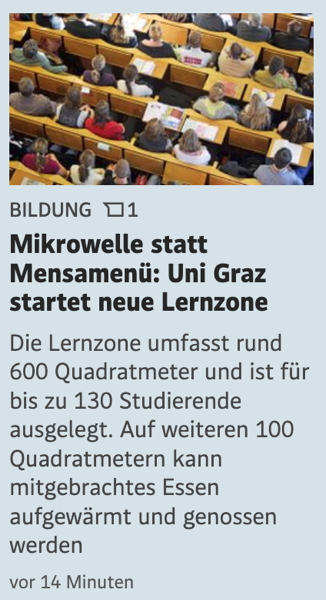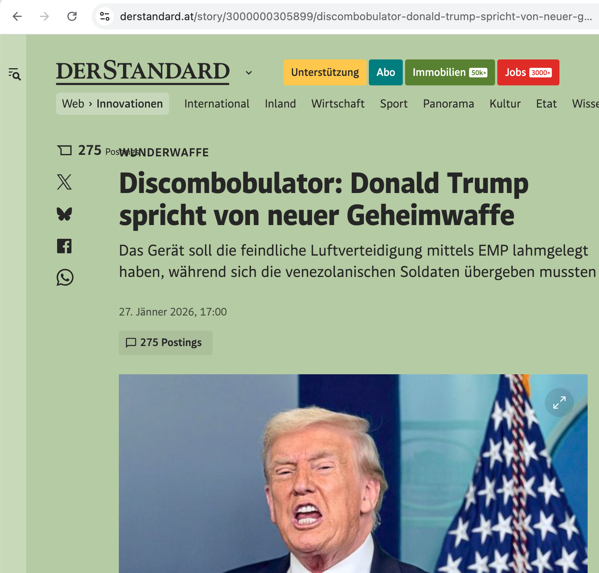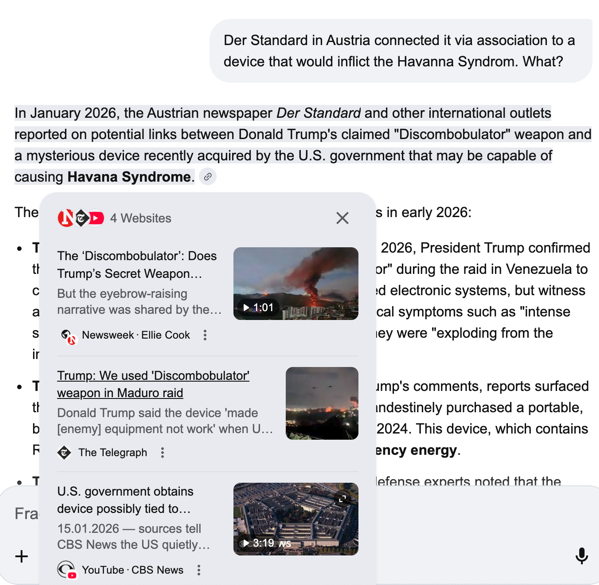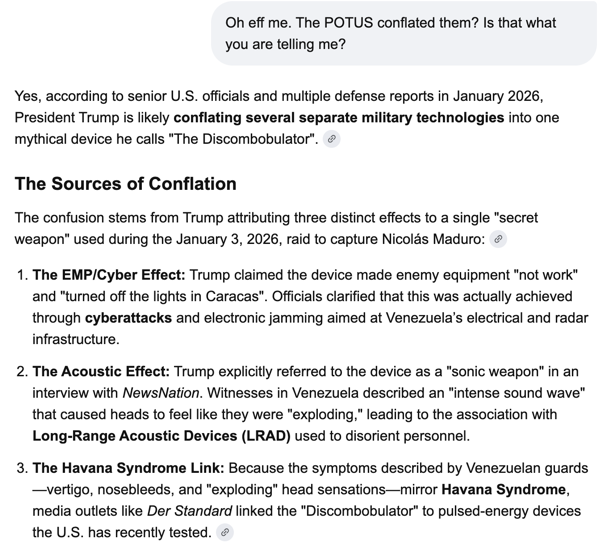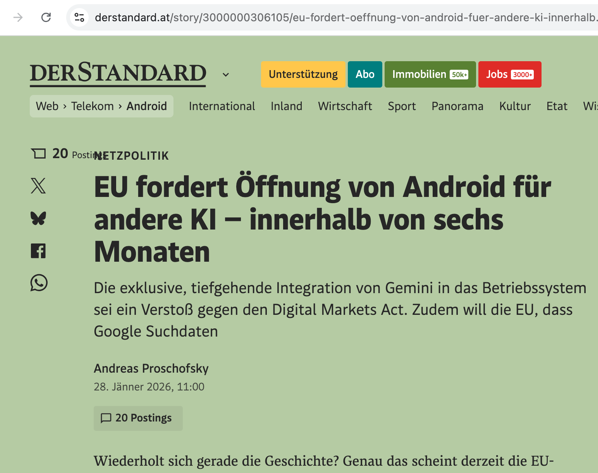
src: click
Die EU ist da auch was ganz Heißem auf der Spur, ich kann in Android nämlich nur - via einen Kontextmenüeintrag von markiertem Text den direkt von anderen KIs verarbeiten lassen.
Und nur andere Apps installieren um mit Anderen KIs zu interagieren, aber kein Alternatives Siri Nutzen, das so als Service noch kein anderer KI Anbieter bis auf Chat-GPT und vielleicht Grok auf Deutsch anbieten kann…
Wobei die Verarbeitung von Stimme, die Elektrizitäts- und CO2 Kosten des AI Anbieters schon ums 50fache steigern würde, …
Plain Text 1 Minute: ~0,0001 €
Audio to Text 1 Minute: ~0,005 €
Aber das will die EU ja, …
Ich bin mir noch nicht sicher ob ich das in der “Danke dass die EU für mich denkt”, oder in der “hat man denen ins Gehirn ge…” Schublade ablegen soll.
Mit dem Blick auf den durchschnittlichen Bildungsstand eines Standard Redakteurs vermutlich in erstere…
Kontext Menü Integration unter Android:

Nutzung einer third Party App unter Android, diesmal Kimi K2 fragend:

Wobei die von mir so konfiguriert wurde, dass sie für die Titelzusammenfassung Qwen3 8B fragt, und für die weiteren Fragevorschläge Deepseek V3.2 Experimental, während die Frage hier von Kimi K2 verarbeitet wurde. Unter Android.In ner Third Party App.
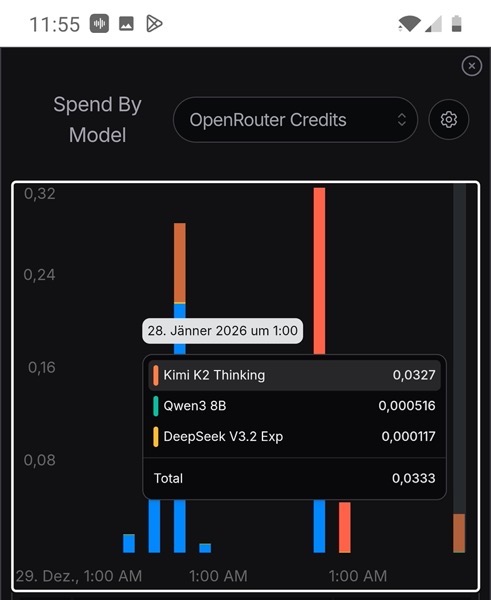
Achja, und die Internet Suche von Kimi K2 lief hier über Perplexity, einen vierten AI Anbieter…
Wobei ich natürlich auch direkt die First Party Apps von zum Beispiel Mistral unter Android befragen kann:
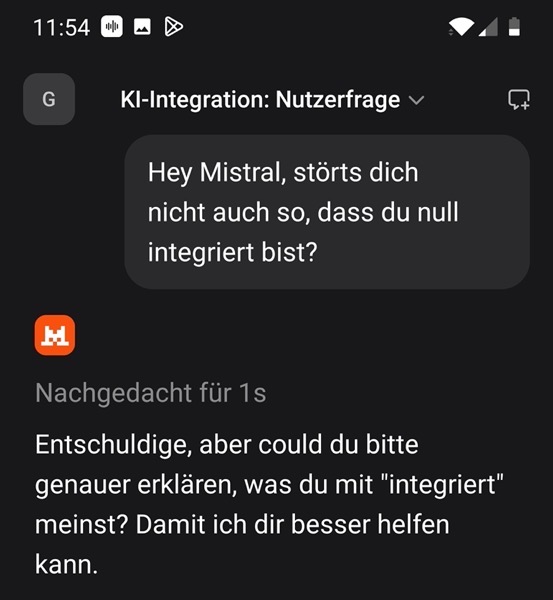
Braucht die EU wieder a Geld, oder?
Oder fällt der EU jetzt auf, dass Google in Android auch einen Voice to Text selector für andere Anbieter in der Searchbar, oder dem Google Voice Tool integrieren muss - wobei die anderen Anbieter null Ahnung davon haben wie Android auf der Funktionsebene Funktioniert? Und keinen Zugriff auf die Google Cloud Daten am Handy…
Man, das wird heiter.
Aus Googles Sicht würd ich einfach eine Integration schreiben, und die User dann im Beschwerdefall einfach an die Kommission weiterleiten…
